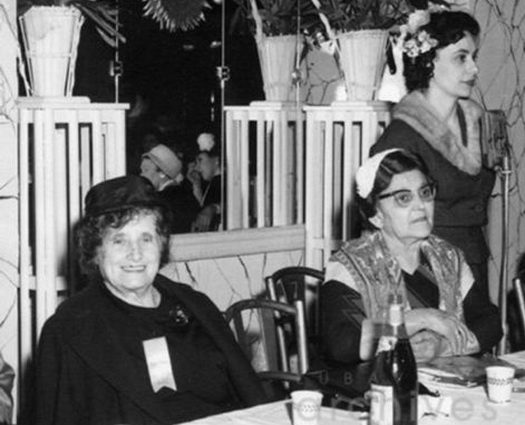
Weekly Story: I Forgive You
by Rabbi Sholom DovBer Avtzon
As I begin writing a weekly story for the eighth year, I want to clarify something. When I began this project, I committed myself to one year, but the feedback kept me going.
However, at the same time it is difficult to find new stories every week, and I therefore plead with all the readers to please share with me stories that you are privy to so that I can publicize them. Thank you.
Since this Shabbos is Vov Tishrei, the Yahrzeit of the Rebbe’s mother, Rebbetzin Chana, I decided to begin with a story that was publicized lately. Your feedback is always appreciated.
In the early 60’s the chossid Reb Shmuel Betzalel Althaus of Australia came to the Rebbe for that Tishrei. Since he grew up in Nikolaev, the same city that Rebbetzin Chana lived for many years, he thought that she would enjoy a visit.
One of the points he mentioned was how he vividly remembers how her father, HaRav Meir Shlomo Yanovsky, would prepare himself for davening.
He would pick up one foot on a bench or chair and would begin singing a valach. Rebbetzin Chana requested that he sing it for her exactly as her father did, which is why he placed one foot on a chair.
Evidently the Rebbetzin later on related this to her son, the Rebbe. At the next farbrengen the Rebbe turn to Reb Shmuel Betzalel and requested that he sing his grandfather’s niggun again, just as he sang it for his mother.
Since the Rebbe requested that he sings this niggun, he began singing it. However, the Rebbe wasn’t satisfied and he said, “We mentioned that it should be the same way as you sang it by my mother, and there you placed your foot on a chair, so here also one foot should be on a chair or bench.
He did as he was instructed, and everyone noticed how throughout the niggun the Rebbe picked up a napkin and began dabbing the tears in his eyes.
Since we are in midst of Aseres Yemei Teshuva, the ten days from Rosh Hashanah and Yom Kippur, when we add a shir hamaalos to our morning davening, I will also post a parable that the Rebbe the Tzemach Tzedek writes in the name of the Alter Rebbe.
I heard it from Rabbi Shmuel Heber at the Shabbos farbrengen in Empire Shtiebel.
A rich man lent a large amount of money to a friend that was also well to do. However, the borrower invested in something promising that went belly up and he lost all of his money.
As the due date approaches, the lender realizes that there is no way that the borrower can pay back the entire loan, even if he demands that it’s paid back on the set due date in two weeks time. The borrower had just lost everything and everyone knows that he is now a poor man.
Yet at the same time the lender doesn’t want to lose the ten thousand rubles/dollars. So after thinking about his options, he came up with the following solution. He knows that in essence the borrower is an honest person, one that would sincerely desire to repay the loan, he is just not in a position to do so. So he figured that if he gives him an incentive to pay up, he will do so.
Going over to him, he says, “I am not asking that you pay me at the agreed upon time. I realize that what happened was not your fault and if you were in a position to repay me you would.
“Therefore, I decided to forgive part of the loan (a few thousand rubles) and extend the time frame for you to begin paying. Instead of paying me in two weeks, you will begin paying in six months, as by then hopefully you will have begun to rebuild yourself.
“Additionally, I don’t expect you to pay the entire new amount at that time, but we will spread it out on a monthly basis over five or ten years.”
The borrower who felt terrible for causing such a large loss to his friend immediately agreed to this arrangement and indeed over a period of years was able to repay his debt.
So by forgiving part of the loan he received the remainder.
This the Alter Rebbe said, is the meaning of the possuk “Ki imcha haselicha l’maan tivurei”- because of Your forgiveness, a person repents. The question is if I am not forgiven I might repent and ask for forgiveness. However, if I am forgiven already, there seems to be no reason to ask for forgiveness.
The Alter Rebbe explains that if a person sinned, in essence he went against Hashem’s will and that is an act of rebellion. At that point the person might think, what will it help if I begin following and observing all of the mitzvos if Hashem is no longer pleased with me? So I will remain on the path I am presently on.
Therefore Dovid Hamelech informed all of us that Hashem will forgive us for our blunder and mistakes. When a person realizes that Hashem is not angry and displeased with his previous actions, and is ready to “forgive part of the loan” he realizes that he can begin a new slate.
May we all improve in our dedication to learning and observing the mitzvos as Hashem will wipe out our previous shortcomings, and may everyone be blessed with a Gmar Chasima Tova in happiness, health and wealth.
Rabbi Avtzon is a veteran mechanech and the author of numerous books on the Rebbeim and their chassidim. He can be contacted at avtzonbooks@gmail.com












